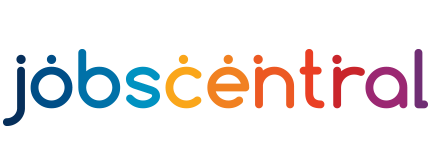
Threading
the path towards a professional career fresh off graduating is no small feat. You
have to go from students who are only responsible for your own performance and
outcomes to professionals who work towards your organisation’s best interests,
alongside achieving career fulfilment – all seemingly overnight. Moreover,
sometimes the work we do doesn’t necessarily align with the ideas we have of
what our jobs should be like. There’s no doubt that a major alteration in
mindset is required to get through a change like this.
In this
article, we learn more about the different challenges a new graduate may face
in transitioning to a workplace and methods that can be utilised to overcome
them.
1) Competition
in the Job Market
One of the
most significant challenges for new graduates is the intense competition in the
job market. As more and more individuals graduate from universities and
colleges, job openings become increasingly competitive and difficult to get. To
get past this first hurdle, you will need to focus on building a unique skill
set, gain relevant experience through internships and volunteer work, and network
extensively to create opportunities. Once you’ve managed to set yourself apart
from the crowd, your chances of achieving your desired role increase
exponentially.
2) Adjusting
to a New Routine
The shift
from a structured school environment to the autonomy of the workplace can be jarring.
New professionals will need time to establish a new routine. They will also
need to learn to adhere to deadlines and manage their time effectively. Fortunately,
cultivating good time management skills can be as simple as creating a daily
schedule and setting achievable goals in order to maintain a sense of structure
and discipline.
3) Financial
Independence
Transitioning
from school to work often means achieving financial independence. But with that
freedom comes a host of responsibilities like managing finances, paying bills,
budgeting, and saving. Suffice to say,
it can be overwhelming to people who are just embarking on their careers. Fortunately,
there are multiple avenues through which people can get the information they need
to make informed decisions such as financial literacy resources. Through it,
you can learn to create a budget and even what to invest in to ensure financial
security. If it comes down to it, consulting a financial advisor can also be prudent.
4) Lack
of Experience
Many
employers require practical experience, which can be a catch-22 for recent
graduates who are trying to secure their first job. Many choose to compensate
for their inexperience by seeking internships or choosing to work at entry-level
positions that provide opportunities for hands-on experience and skill
development. Volunteer work and freelance opportunities can also help you build
a portfolio.
5) Adjusting
to Workplace Culture
The culture
of a workplace can differ greatly from the environment of a school or
university. Navigating office politics and adapting to the expectations of your
superiors and colleagues can be daunting. As such, new professionals might want
to take their time to observe and learn more about the workplace culture, ask
for feedback, and maintain open communication with their peers and supervisors.
6) Balancing
Work and Personal Life
Finally, achieving
a healthy work-life balance is a tantalising goal that can seem out of reach to
new professionals, especially as the demands of a job may encroach on personal
time. However, ensuring that you’re mentally healthy and aren’t in danger of burnout
is incredibly vital. To maintain this sense of equilibrium, it is crucial to
set boundaries, prioritise self-care, and allocate time for your loved ones and
personal interests.
Conclusion
While the
transition from school to work presents numerous challenges, it is essential to
approach them with resilience, determination, and a proactive mindset. By
acknowledging these challenges and taking steps to address them, you can
navigate the path to success with confidence. Remember that each obstacle you
overcome is an opportunity for growth and learning, ultimately contributing to
your personal and professional development.



